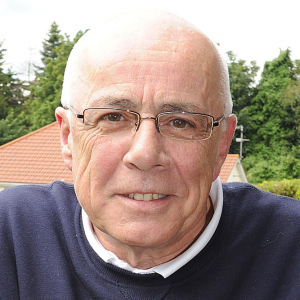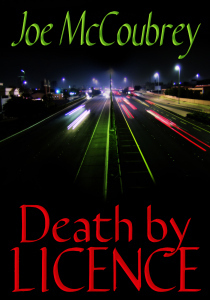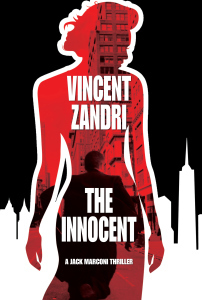C.J. West's Blog, page 4
August 21, 2012
Getting Over The Hump Day – Welcome Tom Adair
I had the pleasure of sharing space with Tom Adair at Crime Fiction Collective, a great blog about the business of writing. I know a fair amount about guns, and still, several times, Tom’s posts taught me something about guns, ammunition, or shooting. I enjoyed his debut, The Scent of Fear, so much that I blurbed it for him. It’s a great book with a lot to teach writers about forensics. I highly recommend it.
Today Tom visits to talk about his method of beating writer’s block.
Please welcome Tom Adair!
Writer’s Block? Abandon the Linear Chronology
Most people are conditioned to think and act linearly. In the process of systems development you have to build upon what is already there if you hope to move forward. No one reads the even numbered book chapters first or begins a movie half-way through right? Doing things out of order just doesn’t seem normal. But when you find yourself staring at a blinking cursor and lacking direction, abandoning your linear thought process may be just what’s needed to move forward.
I approach writing in much the same way I reconstruct a major crime scene. I start by working with pieces. The only difference is that I can’t create the real life crime story; the evidence does that for me. Like writing, the process of crime scene reconstruction can frustrate the analyst, especially when they can’t seem to figure out how all the pieces fit together. You see, criminalists never have a complete picture to work with. We know the criminal arrives and we know he departs but what about all the little things in between?
This is where the process comes in. We call it Event Segment Analysis. Essentially we distill the events of the crime into single facts that are proven by the physical evidence and write that on a little post-it note. One may read window broken from outside, another may read victim’s shirt cut off, or table knocked over. At this point we don’t care about the order of the events we just want to identify those things that can be proven by the physical evidence. Those little post-it notes are like the scenes in a novel. They tell a little story within a much larger one.
When I plan a novel I have a definite beginning, definite ending, and a number of scenes planned in between. I don’t fill in many of the details until I’m writing that particular scene. I call that filling in the gaps and I’ll bet many of you do something similar. Often, I have no idea if a particular scene I want to create will end up in chapter ten or fifty-five. I just know I want it to fit in when the time is right. As I write, however, I naturally fall into a linear thought process. At first things go well; this scene leads into that one and then the next. Eventually though I hit a roadblock. I can’t see how one event is going to lead into the next and the creative process stops.
It is at times like these that I remember my approach to crime scene reconstruction. Sometimes it helps to look at things (scenes) out of order to get them to make sense. If you’re like me you have a number of scenes planned for you novel. Maybe two people fall in love, betray one another, and commit a murder or some other crime. So when I find myself blocked I just start writing a scene that I have planned for later in the novel. I don’t care if I can fit it together with another part, I just write.
As I develop that scene, the characters, their dialog, something interesting happens; I get more creative. I realize that some of what I am writing at that moment may change but I don’t care. In fact, one of the most enjoyable parts of my writing process is developing characters and scenes I had never envisioned when I first outlined the story. They develop out of necessity. Pretty soon the gaps get shorter and the process of connecting the scenes gets easier.
So the next time you find yourself unable to figure out what comes next in your scene; divorce yourself from a linear chronology and restart your creative juices by working on another scene you had planned. As those scenes develop the gaps in your story will shrink and you’ll be well on your way to finishing the story.
Tom Adair is a retired senior criminalist and internationally recognized forensic scientist. His first novel The Scent of Fear was published in 2012. Tom demystifies forensics for crime writers at his blog forensics4fiction.


August 14, 2012
Getting Over The Hump Day – Welcome Jillian Dodd
Please welcome my new friend Jillian Dodd to Getting Over the Hump Day. Many of you know Jillian from our MANday challenge this summer. For those of you who haven’t met Jillian yet, she’s a YA author who’s had tremendous success with her books That Boy and That Wedding.
Thanks to Jillian for giving us her advice on getting over the hump.
I love to write and never sit and stare at a blank screen waiting for the words to come. They usually flow right out of me. I’ve never had writer’s block, but I have had times where a scene or portion of a book just isn’t really working right. Sometimes I think we get so close to our writing that we need to step away. Even though it seems like I’m focusing on other things, my mind is still trying to work out a way. I usually try to motivate it to do so by doing the following:
1. Go for a drive. I roll the windows down, crank up the music, and drive with no where in mind to go.
2. Go for a walk.
3. Cook dinner.
4. Sleep.
5 Call my mom.
When I do things 1-4, I always have my phone handy. Many large chunks of my books are written on a notepad in my phone. I then email it to myself and load it into the manuscript I’m working on.
Number 5 is when I start talking it out. My mom reads all of my works in process, and she’s great at giving me the hard truth when something isn’t working. When Mom and I talk, we basically are brainstorming. Throwing out other ways that the story could go. Other ways the characters could react.
I’m also in a great writer’s group that has a very unique way of working. We help each other brainstorm and sometimes that’s what a writer really needs. Another perspective. Some wild ideas. Things that open my brain up and get it out of the tight focus that it’s been in. For some reason, that allows my mind to come up with the answers it’s been searching for.
What about you? What sorts of techniques do you use to get your mind ready for writing?
Jillian Dodd grew up in Nebraska, where she developed a love for storytelling, Husker football, and Midwestern boys.
She currently resides in Texas with her family.
Follow Jill on her website and blog,
Glitter, Bliss, and Perfect Chaos.
A portion of the proceeds from all Jillian’s books are donated to charity.


August 8, 2012
Get Over The Hump Day – Welcome Joe McCoubrey
Please welcome Joe McCoubrey, an Irish journalist and now a full time thriller writer who I’ve met this past year. Joe shares some great ideas about getting down to work as well as his process for getting the ideas for his stories down. He’s a pantser and not a plotter (like me) but I can relate to rushing out of bed the way Joe describes.
How I get over ‘The Hump’ by Joe McCoubrey
We all hit a brick wall now and again with our writing.
I don’t know about you guys but at times like that I find it easier to look for something else to do, convince myself that I need a break, anything but stare at a blank screen.
It’s procrastination with a capital P and I’m ashamed of all the times I’ve succumbed to its charms.
I’ll let you into a little secret. After battling with it for several years I finally figured out what to do about it.
Let me first set the record straight. I’m not talking about the dreaded muse here! There’s no such thing! Don’t listen to those who perpetuate the myth about some sort of inspirational phantom who ‘visits’ the worthy and drips ideas into their psyche.
Waiting for some kind of divine assistance is a bit like believing in Santa Claus, the Tooth Fairy, or that Bill Clinton didn’t have relations with that woman!
We writers have an urge to write. At times it’s overwhelming, and on those occasions the words seem to flow. But is this caused by a muse? Do me a favour! The simple fact is that our urge to write is greatest when we develop our ideas for a plot, or a sub-plot. On those occasions we can’t ignore the demand to get the ideas down on paper.
What do I mean by developing ideas?
Well, unless you’re a storyboard plotter who maps out every scene and every twist and turn before starting on paragraph 1 of chapter 1, there will be times, and lots of them, when you will struggle over how to keep the story flowing, making sure you create just the right amount of continuity, linkage and pace for the reader. It’s at these times you will experience the hump.
Incidentally, I’m not a big advocate of storyboarding. I’ve tried writing both ways and can honestly say that after a minimum of original outlining I find ad-libbing my way through the story creates a far better flow. I love not quite knowing what I’ll end up doing with a particular character or scene, and oftentimes it helps my own writing enjoyment. But maybe that’s just me.
However, I’ve digressed. I get over the continuity hurdle by taking time out to imagine the next scene. I usually do this at night prior to going to sleep by forcing myself into a dream scene of what my characters are getting up to. I’ve gotten so good at it that it becomes vivid, so much so that I’ve often jumped out of bed and rushed to the keyboard to knock out a few paragraphs to remind me where to start my next session.
I kid you not! It works so well that I’ve also found myself replaying scenes already written and deciding they need re-touching because a new idea or a missing link has become apparent.
The motivation to write is another matter altogether. I try to set aside time every day for writing but it’s not always possible to be so disciplined. The enthusiasm is bound to wane from time to time and I’ve been known to stay away for days on end. One period of inaction lasted six weeks!
The thing that drives me out of the ruts like these is reading the works of other authors. Someone once said you can’t be a writer if you’re not a reader, and how right he/she was. I’m a devourer of books. It was my love of reading that got me into writing, and it’s what still sustains me. Reading great authors and marvelling at their skills in telling diverse stories in individualistic styles is a tremendous motivation to want to get back to my own writing.
As writers we can dream up the kind of characters who rise at 7am, do a 10-mile run, grab a shower and a light breakfast, and be settled in front of their computers ready for a solid 8-hour shift progressing their latest novel by 10,000 words a day. Heck, we can even see them knocking out a new masterpiece every six weeks or so.
Thankfully, they exist only in our imaginations! The reality for writers has much less glamor and a lot more drudge.
Don’t get me wrong, I admire those with the discipline and fortitude to set regular hours, but it’s not my cup of tea. I try to pencil in certain days and times for my writing. But if things get in the way, I don’t get flustered about it – I know there will be other times when I’ll probably more than make up for ‘lost’ output by putting in a good marathon session.
I suppose, on balance, I prefer the scattered approach of letting the ideas form in my head, and then rushing (relatively speaking) to the laptop to try to get them down.
What I found to my cost is that it is wrong to draw up a seat in front of the laptop and prepare to write, without having previously formed reasonable thoughts and ideas.
Writer’s block? No, just a case of being mentally unprepared to bring ideas to life. It leads to frustration, annoyance, and eventually anger. I determined a long time ago not to go down that road.
If I have one last piece of advice to offer, it is this. When you do encounter a brick wall don’t walk away. There’s a lot you could be doing while you wait to get your ideas back into shape. The best activity has got be to editing and proofing what you’ve already written. This is a chore that simply has to be done over and over again so why not tackle it when you have the time?
If nothing else it will ‘clean up’ the work already done but, more importantly, it will remind you that the stuff you’ve written so far is not half bad! It will probably also put you back in touch with your story and your characters, thereby leading to a renewed burst of ideas and enthusiasm to go forward.
There are many, many ways to get over the hump. I’ve outlined a few of mine but I’m betting others have different, more effective methods for dealing with the roadblocks.
All you can do is find what works for you.
BIO
Joe McCoubrey is a former Irish newspaper editor who is now a full-time action thriller writer. In the early seventies he was working in the Civil Service based at Stormont, the seat of the Northern Ireland Government, and watched behind the scenes as some of the country’s most momentous events unfolded. These were the early dark days of the ‘troubles’ – events that reverberated around the world, and somehow served to push him towards his real passion of writing. He became a newspaperman, started his own media business, and took a front row seat as history was played out in Ireland.
His short action story Death By Licence has just been published by Master Koda Select Publishing. His debut full-length thriller Someone Has To Pay will soon be released. A second full-length actioner is at the editing stages, and work has started on an Irish crime thriller.
Joe McCoubrey has lived all his life in the beautiful Irish town of Downpatrick, made famous by its association with the national Patron Saint, St. Patrick.
You can visit him at: http://joemccoubrey.com/


July 31, 2012
Get Over The Hump Day – Welcome Vincent Zandri
Please welcome Vincent Zandri to Get Over The Hump Day.
If pressure makes diamonds Vincent Zandri is certainly a gem. When I first shared the spotlight with Vincent on Blog Talk Radio, he was welcoming and generous. He was as supportive as any indie author without a hint that he was outselling Stephen King. He has a kindness and peace that only come after overcoming great obstacles.
Today he shares a very personal and inspirational story. Enjoy!
Surviving the Slump
By Vincent Zandri
The year was 2005 and I was at my wick’s end.
What had started out as a stellar literary career of writing crime novels for a Random House imprint to the tune of 200K a pop in advance money, went south due to a corporate merger. I had published two books that were going nowhere and, at the same time, gotten involved in a ghost writing project that, while sending me around the world on a fact finding mission on the client’s dime, nearly drove me towards a nervous breakdown when it came time for the actual writing. Imagine writing for someone who is constantly telling you, “You can’t write that piece of dialogue. My friend George Bush won’t like it.” That’s the kind of vice tightening madness I was up against.
I was broke from a protracted divorce, without a home I could call my own, no money in the bank, considerable debt, no book contracts, no work, nothing. I had recently remarried and it was not going well. Instead of being a good and decent husband, I spent most of my nights staying up until the wee hours, stressing, plotting, but mostly just feeling sorry for myself. Things got so bad, my wife asked me to move out. I loved her more than any woman in the world. And because I loved her, I did what she asked of me. I moved out.
A couple of months later I woke on a cold Christmas morning. The kids were already up, but I decided I didn’t want to have a Christmas that year. So I stayed in bed until everyone had opened their gifts. When I finally emerged from my bedroom sometime that late afternoon, I went immediately to the refrigerator and cracked open a beer. I also lit up a cigarette. I stood there at the sink, staring at the beer and the blue smoke rising up from the cigarette. I knew I had reached a pivotal moment in my life. I could either slide down that slippery slope towards certain protracted death. Or, I could somehow make the effort to get my life back together.
I’m not sure what came over me at that very moment in time, but I put out the cigarette and dumped the beer. I apologized to my family over missing Christmas and then I put on my running clothes and went for a long jog on that cold December afternoon.
The next day I went back to work. Since it was going to be a while until I could manage another book contract, I went back to the beginning, so to speak. I went back to the same kind of freelance journalism and freelance writing that had originally sustained me back when I was just starting out. It took some time, but I eventually scored gigs with some global publications. I worked so hard at it day in and day out, that within the year I was working for RT, Russia’s English speaking 24 hour global satellite news network. I found myself writing news pieces, professional blogs and photographing in places like West Africa, Moscow, Italy, Paris and other destinations. I also secured some much needed bread and butter work with some trade journals that specialized in architecture, building, and design. Suddenly, I was paying my rent and putting some money away. I’d even managed to pay up most of my debt. Not bad considering when I moved out of my house my wife loaned me fifty bucks in order to start a checking account.
I wasn’t only writing journalism at the time. I was also stealing an hour or so a day to work on the new novel that would become Moonlight Falls. To my surprise, an agent willingly took it on, and while I was still more or less blackballed by the majors for having not earned out my original $250K advance, she secured a contract with a small publisher. I couldn’t have been happier. I was not only back as a professional writer and journalist, I had a new book coming out.
I was so encouraged by my humble but serious success that I started taking even more time out to write fiction. That next year I wrote The Remains, The Concrete Pearl, and then Moonlight Rises. Those got picked up by one of the hottest indie publishers in the business. In the meantime, my agent managed to re-acquire the rights to my Random House books, The Innocent and Godchild. My new publisher agreed to republish them also. By the fourth year of my career rebuilding and re-commitment to excellence, I had sold more than one-hundred thousand copies of The Innocent and nearly the same for Godchild. The Remains would go on to sell at least as many. Almost all of these sales were e-book sales, which meant the books would never go out of print. In the end, I sold so many books I would have earned out my Random House advance.
Enter year six. With my new sales record and the income that was coming in along with it, I found myself with a new agent. That agent was able to repackage Vincent Zandri and acquire an eight book, “very nice deal” with arguably the hottest and potentially most powerful new major publisher on the block: Thomas & Mercer of Amazon Publishing. I had come full circle.
It took six full years to overcome the hump, or slump if you will, that began with a simple corporate restructuring. No matter what you call it, it still resulted in my having been served a crap sandwich. But there’s a major lesson to be learned here. As bad and personally directed as it all seemed at the time, my situation wasn’t unique. This business is fraught with disappointments and stumbling blocks too numerous to mention here. It’s not a matter of avoiding them since you can’t possibly avoid them all, but a matter of positioning yourself so that you can deal with them without having to take too many steps backwards.
Sure I have the major deal again but unlike the last time, I have set myself up so that I am never without a writing income, should one of my sources go south. How can you do the same?
–Don’t put all of your eggs in one basket. If you’re a journalist and/or freelance writer, try and maintain a client or two, even if your books are making you a nice living. The money will be welcome, and it will keep your journalism skills sharp.
–Don’t rely on one method of publishing. Acquire major, traditionally-based independent, and self publishing contracts. This is an ever changing business and what seems like an awesome major contract today can become a real dog tomorrow.
–Ally yourself with a very good agent. He or she will secure you work should you need it. And of course, they will sell your movie, TV, and foreign rights.
–Take care of yourself. I still like to drink beer and wine, but I never again touched another cigarette after that one dreadful Christmas day nearly seven years ago now. I run and lift on a daily basis and I love to cook good food.
–Travel. See the world and write about it. This will re-energize the batteries and give you a global perspective, the least of which is this: the world and the universe does not revolve around you.
–If you’re in bad relationship that prohibits your making a success of yourself as a writer, get out of it. My second wife saw the destructiveness of our relationship and she made the difficult decision to end it while we still had love for one another and even a friendship. Today, I have my life back together and we are once more a couple. But this relationship is so different from what we had before, that she seems like an entirely new woman to me. And as for me, I’m an entirely new man. I’ve learned from my mistakes and turned a disaster into a success. More importantly, I’ve grown up. And in doing so, I survived the slump.
Vincent Zandri is the No. 1 International Bestselling Amazon author of THE INNOCENT, GODCHILD, THE REMAINS, MOONLIGHT FALLS, CONCRETE PEARL, MOONLIGHT RISES, SCREAM CATCHER, BLUE MOONLIGHT and MURDER BY MOONLIGHT. He is also the author of the Amazon bestselling digital shorts, PATHOLOGICAL, TRUE STORIES and MOONLIGHT MAFIA. Harlan Coben has described THE INNOCENT (formerly As Catch Can) as “…gritty, fast-paced, lyrical and haunting,” while the New York Post called it “Sensational…Masterful…Brilliant!” Zandri’s list of publishers include Delacorte, Dell, StoneHouse Ink, StoneGate Ink and Thomas & Mercer. An MFA in Writing graduate of Vermont College, Zandri’s work is translated into many languages including the Dutch, Russian, and Japanese. An adventurer, foreign correspondent, and freelance photo-journalist for RT, Globalspec, IBTimes and more, he lives in Albany, New York. For more go to WWW.VINCENTZANDRI.COM


July 30, 2012
Are You A Good Witch Or A Bad Witch?
Remember that line from the Wizard of Oz?
A few weeks ago I visited the Salem Witch Museum with my daughters and some of their friends as part of a school project. Yes, we went in July even though school is out. My youngest daughter takes advanced placement classes and the requirements for summer work are outrageous!
The museum hosts a reenactment of the Salem Witch Trials of 1692 in which twenty people lost their lives. Most of those found guilty of witchcraft were imprisoned, but Giles Corey was brutally crushed to death for refusing to enter a plea.
Sitting and watching the reenactment I was struck by how much our society has changed. In 1692 punishments were brutal and in Mr. Corey’s case unjust. Try to imagine how desperate Mr. Corey must have felt, knowing he was innocent while they piled heavier and heavier stones on him until he was crushed to death.
The proof against Mr. Corey and the others was the testimony of three girls who later admitted they made the whole thing up because they were bored. I like to think that we have come a long way in our criminal justice system, but I wonder what would happen if three different girls from a small town accused someone of crime. I have an inkling that we have a protective instinct toward young girls and that their accusations would be given serious weight even in this age of forensics.
When the reenactment was over we moved to the second half of the museum where the staff discussed the reality of witches. I had to laugh at myself when they played that clip from the Wizard of Oz. We see witches in the media dressed in black and flying on brooms. Even Harry Potter, the most modern wizard that comes to mind, flies on his own fancy, brand name broom.
The final thing that struck me during the tour was the word “pagan” and the meaning that has been assigned to it through the ages. Visit this page at Merriam Webster and look at the comments. There is a debate raging about MW’s definition of the word as an “irreligious or hedonistic person.”
I’m not going to suggest you convert to paganism, but the museum staff gave an interesting talk about how the church and the media have colored our view of witches. Institutions like The Salem Witch Museum help us understand the mistakes of the past and how our culture has influenced our understanding of history.
What I am wondering today is… now that we have taken the power of information out of the hands of the few and spread it around to all of us, what mistakes will we make with this new power? And how will our ability to communicate over social media and blogs give rise to the Salem Witch Trials of 2012?
What things will our descendants look upon and remember how naive we were way back in 2012?
Are You A Good Witch Or A Bad Witch?
Remember that line from the Wizard of Oz?
A few weeks ago I visited the Salem Witch Museum http://www.salemwitchmuseum.com/ with my daughters and some of their friends as part of a school project. Yes, we went in July even though school is out. My youngest daughter takes advanced placement classes and the requirements for summer work are outrageous!
photo http://www.salemwitchmuseum.com/
The museum hosts a reenactment of the Salem Witch Trials of 1692 in which twenty people lost their lives. Most of those found guilty of witchcraft were imprisoned, but Giles Corey http://en.wikipedia.org/wiki/Giles_Corey was brutally crushed to death for refusing to enter a plea.
Sitting and watching the reenactment I was struck by how much our society has changed. In 1692 punishments were brutal and in Mr. Corey’s case unjust. Try to imagine how desperate Mr. Corey must have felt, knowing he was innocent while they piled heavier and heavier stones on him until he was crushed to death.
The proof against Mr. Corey and the others was the testimony of three girls who later admitted they made the whole thing up because they were bored. I like to think that we have come a long way in our criminal justice system, but I wonder what would happen if three different girls from a small town accused someone of crime. I have an inkling that we have a protective instinct toward young girls and that their accusations would be given serious weight even in this age of forensics.
When the reenactment was over we moved to the second half of the museum where the staff discussed the reality of witches. I had to laugh at myself when they played that clip from the Wizard of Oz. We see witches in the media dressed in black and flying on brooms. Even Harry Potter, the most modern wizard that comes to mind, flies on his own fancy, brand name broom.
The final thing that struck me during the tour was the word “pagan” and the meaning that has been assigned to it through the ages. Visit this page at Merriam Webster http://www.merriam-webster.com/dictio... and look at the comments. There is a debate raging about MW’s definition of the word as an “irreligious or hedonistic person.”
I’m not going to suggest that you convert to paganism, but the museum staff gave an interesting talk about how the church and the media have colored our view of witches. Institutions like The Salem Witch Museum help us understand the mistakes of the past and how our culture has colored our understanding of history.
What I am wondering today is… now that we have taken the power of information out of the hands of the few and spread it around to all of us, what mistakes will we make with this new power? And how will our ability to communicate over social media and blogs give rise to the Salem Witch Trials of 2012—things our descendents will look upon and remember how naive we were way back in 2012.
July 27, 2012
MANday Week 13 Back In The Saddle
Last week I started an experiment. When I’m stressed about something and tempted to reach for a cookie, I get down and do a few pushups. The idea was to change my habit of eating when stressed to a healthier habit of exercising when stressed. If it works and I can find relief from stress in exercise, it will be doing double service. Relieving my stress and doing my body good at the same time.
I’m on the right track after my first week, but it will be a long time before I know if it is having any real impact.
For those of you who have been following MANday from the beginning, you know I’ve been hurt and stopped exercising for a few weeks. I’ve been getting steadily better and one of the reasons for my experiment this week was to try out my abs and see if they could take pushups.
Good news so far. I did fifty pushups on Wednesday (twenty at once). My arms were a bit stiff on Thursday, but my side has been pain free.
I’ve been slowly ramping up my exercise but not always in the most intelligent ways.
Last weekend I went out along the Cape Cod Canal in flip flops. What started as an easy walk for a mile or two turned into six miles. My legs felt great. My lungs appreciated the fresh air. The weather was perfect. But walking six miles in flip flops can give you huge blisters on the bottoms of your feet. If you don’t believe me, come over, I’ll show you mine.
That put a crimp in my plans to get out and run.
All in all, it’s good news this Friday. I’m back in the saddle and ramping up to running by midweek next week.
How is your workout routine coming along?


July 24, 2012
Get Over The Hump Day – Welcome Terry Odell
Welcome to the second installment of Get Over The Hump Day. Please welcome Terry Odell, author of 10 novels she calls romance with a twist of mystery. Terry has some great advice for keeping your writing momentum and keeping your head up when the words aren’t quite flowing.
Thanks so much to CJ for inviting me to be a guest today.
When you’re a writer, most of your time is spent alone with your keyboard and that blinking cursor on the monitor. And sometimes it sits there blinking, blinking, blinking—daring you to move it down the screen.
There are probably as many methods for dealing with stalled writing as there are writers. Nora Roberts who’s written more books than even she can count, I think, is known for saying, “You can’t fix a blank page.” She’s spot on with that. I’ve got a t-shirt that sums it up.
A few tips I can share for keeping things moving forward:
1. Understand why you’re stuck. For me, it’s usually because there’s a plot point I haven’t figured out. For example, I might know who the killer is, but I’m not sure why he did the killing. Use the “Rule of Twenty” to help brainstorm through that. (Don’t know what the Rule of Twenty is? It’s simply coming up with twenty possible answers, reasons, or solutions to any given plot point.) In general the first ideas you get will be the obvious, and won’t make your writing special. Admittedly, I don’t usually get as far as twenty, but each one can open up new lines of thought. Often, what seems totally off the wall ends up leading to one that works.
When I began writing DANGER IN DEER RIDGE, the 4th book in my Blackthorne, Inc. series, I knew the hero was going to be Grinch, who’d been a secondary character in other books in the series. What I’d forgotten was that due to a throwaway line in the first book, where he never even appeared on the page, he had a child. How could I write a romantic suspense where the hero had a kid? After considering as many possibilities as I could, I ended up with a way around the problem. (Of course, my solution also involved a dog, so now I had yet another “character” to deal with.)
3. Don’t waste time on details. Placeholders are your friend. XXX works very well. I’m terrible at descriptions, and even worse at metaphors. Likewise character names. If I’ve stopped for more than about thirty seconds, I simply put in an XXX and move on. In DANGER IN DEER RIDGE, a character was a landscaper, and he’d brought a plant that was suited to the setting high in the Colorado mountains. An XXX with “research plants” meant I could keep writing instead of fretting about what kind of a shrub he would have brought her.
2. Understand you might have slow days. Didn’t meet your word count goal? Why? Were you stuck on a piece of research you needed? Getting the answers counts as writing time. “Head Writing” counts as writing time. I don’t outline, or plot more than a few scenes in advance, although I do have plot points that will have to be covered, or simple “what about?” questions that I write on sticky notes and put on a foam core board. Thinking about the book counts as writing. (And, this might be the perfect time to go back to your XXXs and see if you can fill them in.)
4. Don’t stop at the end of a scene. Move at least a few paragraphs into the next one, or make a note of the plot points. That way, when you come back to work the next day (and if you’re a writer, it is a job, so you need to be as disciplined as if you were going to the office), you’ll have a running start. Knowing where you’re going brings the excitement needed to get that next section on the page.
5. Print out your day’s output. Take it away from the computer to read. I like to do this in bed, where it becomes a “book” and not “work.” Make basic markups, noting things that jump out at you, such as repeated words, confusion as to who’s speaking in dialogue, typos, transitions, and places that need elaboration or cutting. Don’t fix them, just make notes. Then when you go back to work the next day, you’ve got another running start.
6. I also have a tracking board. When I finish a scene, I jot the plot points, characters, time, and setting onto sticky notes and put them on what others call a story board. But I do mine after I’ve written the scene. I admit I get behind at times, so during those “lulls” I go back and take care of updating it. This also can trigger new ideas. When I was writing DEADLY SECRETS, I wasn’t sure who the murderer was. Then I looked at my tracking board and saw a character’s name showing up in all the critical scenes. Ta Da!
Please remember: this is what works for me. I fix as I go, and when I get to “the end” I’ve got a polished first draft. Normally, one more pass and it’s ready to go to my editor.
And, when things seem impossible, you can always write a guest blog post!


July 19, 2012
MANday Week 12 Is Stress Eating You?
Stress is what happens to the body when the mind stops it from beating the hell out of some ass that richly deserves it.
Picture that for a second and feel the energy bouncing around that body. What do you do when you feel that angry?
Last night I got a phone call that whacked me out and I went straight for the chocolate chip cookies. Not good for a guy who’s not exercising and getting ready for a MANday photo! But the obvious alternative isn’t socially acceptable.
Today I’m thinking about the link between stress management and diet. Two people come to mind. One lost someone close to him and then gained an unhealthy amount of weight. The other eats whenever something bothers him. Both people are at risk for all sorts of problems and will probably die earlier than someone who exercises and eats a healthy diet.
Why did this happen?
Probably because junk food is really soothing and for some reason it makes difficult emotions more bearable. Women seem to become aware of this in high school, but for men it is more subtle.
When I moved into a place where I couldn’t store chocolate ice cream, I found myself driving to a little take out place for a hot fudge sundae whenever I was really stressed. I have no idea how long I’ve been doing this, but my guess is it has been decades.
The cycle isn’t a good one. I get stressed. I eat junk. I gain weight.
What if when something bothered me I did a few pushups instead of eating a cookie?
I wonder if I’d feel better and be better able to deal with other stresses that come along. It seems to me like pushups are a better way to burn off that anger and frustration than eating chocolate. Maybe I’ll get past the annoyance faster that way.
For the next week, I am going to try and substitute pushups for cookies when I’m annoyed and see what happens. Want to try it with me? You know you do.
July 18, 2012
Get Over The Hump Day – Welcome Libby Fischer Hellmann
Ernest Hemingway said, “There is nothing to writing. All you do is sit down at a typewriter and bleed.”
You may not realize how true this is for writers unless you are one. We overcome tremendous obstacles to create our stories and in the process we learn how to motivate ourselves when things look dim. Today I’m starting a feature called Get Over The Hump Day. I’m going to invite writers here each Wednesday (hump day) to tell us how they stay inspired.
My guest today is Libby Fischer Hellmann, author of eleven novels and as many short stories, most recently A Bitter Veil. You can find her here. You should also know that her book Easy Innocence is free today on Kindle.
Libby is hosting my Get Over The Hump Day post on her blog today. We call it Mutual Bloggeration.
Please welcome Libby!
When the Going Gets Tough…
Funny you should mention this, CJ. I’m in a tough place right now and —well— I’m struggling. It’s not writers’ block per se. It’s broader than that.
Over the past ten years I’ve published ten novels (depending on how you count them) and about twenty short stories. Number eleven is done, and it should come out in 2013. When I think about how far I’ve come, I’m amazed, especially since writing was never on my master plan. I was going to be a film-maker — the Lina Wertmuller of the United States. I had visions of riding off into sunset with Federico Fellini. Life had other plans, though, so here I am.
But I’ve always been a sucker for a story. The most seductive words I know are “Hey I want to tell you a story.” Say that, and I’m yours. So it finally dawned on me that I am a storyteller, whether I’m writing it, filming it, or just imagining it.
And that’s the problem. I’m just not that excited by the story I thought I’d be telling next. As some of you may know, I’ve reinvented myself in my fiction. I started with an amateur sleuth mystery series, expanded into a hard-boiled female PI series, and branched out into thrillers and stand-alones. The thriller I’m revising now is set in Cuba, and that’s usually the time when I casting around for my next story. It’s never failed. In fact, the siren song of the “next best thing” usually puts me under its spell, and I can’t wait to get started.
This time it’s different. I had written up to page 60 on a new Georgia Davis story when I left her and decided to write three stand-alone thrillers. I promised myself I’d go back when I’d finished. The story isn’t a bad one, and I’d pretty much figured it out in my head. Georgia discovers a half-sister she never knew she had, and that sister is in big trouble. I was also going to bring back a character from an earlier book — the villain who got away.
But the problem is that I’ve been avoiding jumping in. I reread the first few chapters – bear in mind I wrote them almost three years ago – and they sounded flat and boring. No problem. That’s why we do revisions. So I rewrote the first chapter, and it’s better. More exciting. Still, I’m not captivated by the story the way I should be. And I can’t figure out why.
Is it because I already know the story? Often when I’m writing I love the sense of discovery and surprise when a character does something I didn’t expect and the plot moves in an unexpected direction. But I already know most of the twists and turns in this story.
Is the story itself a little too formulaic, too “PI-driven?” It’s not exactly a new story. Few plots are. (They say there are only two plots in the world: A person goes on a journey, or a stranger comes to town.) But we write anyway, and no story turns out to be quite like another. I suspect that would happen here.
Or is it “story fatigue?” After eleven books and twice as many stories, am I just storied out? Bored with my thinking, bored with the genre, bored in general? Am I finished? All washed up? Do I have any stories left to tell? I don’t know.
Usually when I have writers’ block, I stop writing so that my brain switches from left to right, or right to left (whatever it is). I read a new book by an author I love… I go to the movies… or I talk it out with a friend. (My friend Judy Bobalik can tell you a funny story about that. Just ask her.)
This time, though, I’m not sure what to do.
Anyone have any suggestions?


July 16, 2012
When Fans Become Friends
Several years ago I joined Myspace and learned how to make friends using a tool called Friendblaster. I hoped my new friends would buy and love my books. I soon learned they all wanted something different. Some wanted to pass the time. Many wanted to sell me something. Some wanted advice. A few even wanted to sleep with me. That was a shock! I never expected women to solicit sex online, but now nothing surprises me.
At first I saw my new online friends as customers, but over the years I began to connect with many of them as true friends. I’ve learned so much from my friends in the medical, legal, and law enforcement communities. I’ve been counselor, mediator, and book reviewer to many. My most enjoyable role is still game show host. I love running contests and giving something back to those who have supported me most.
Writing in my office at home there is no one down the hall to chat with. No one stopping by the water cooler. But Facebook and Twitter are never far.
Nancy, me, Sue
This last weekend I drove to Lisbon Falls, Maine to spend time with someone that goes back to those early days on Myspace. The whole family welcomed me in. Friday featured a birthday party with about 50 guests. Normally when I’m in such a large gathering of people I don’t know I’m “on,” telling people about my work and selling books, but this weekend I was part of the family.
It was a joy to sit back and meet everyone. I put my writer hat on a few times. I’m always curious about family dynamics and it was interesting to take in all the personalities. It’s also heartwarming to be surrounded by a loving family that truly cares for one another.
When I told people on Thursday it was going to be a relaxing weekend, they warned me it would be hectic and chaotic with all the little ones around, but we lounged by the pool, watched fireworks and took in the Moxie parade without a single tantrum. My kids are nearly grown, so one of the true joys of the visit was watching the little ones play in the pool. Those little giggles never get old.
Today as I go back to work I’m truly thankful that my circle of online friends has gone far beyond the typical author/reader relationship. I count myself lucky to have so many good friendships that have blossomed from a simple friend request.
What unexpected blessings have you found in your online life?






















